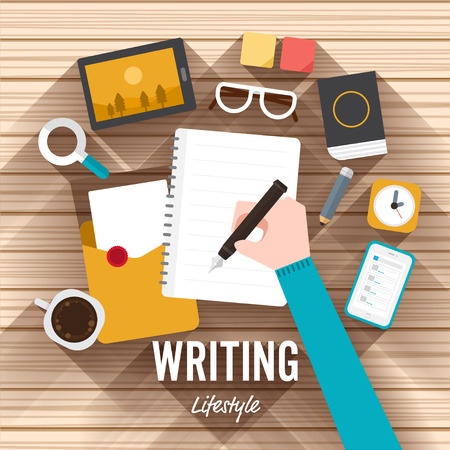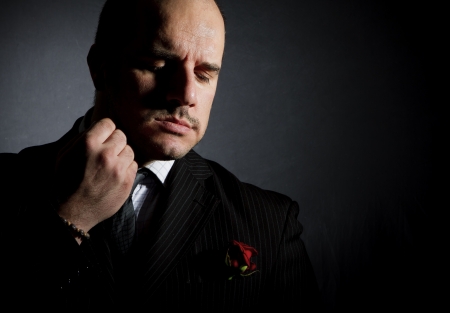没有最好只有更好 英音美音谁更高大上
- 2016年01月20日17:00 来源:小站整理
- 参与(15) 阅读(12362)
In America, prestige speaks with a British accent. Friendliness, however, sounds a lot like you.
在美国,人们觉得英音高大上,而美音则显得友善。
Record a variety of people reading the same passage aloud —speakers from different regions of the English-speaking world—and then play those recordings to American college students. Ask the students for their first impressions about the speakers. Are they well-educated? Do they have good jobs? Are they funny? Would you trust them?
让来自不同英语地区的人们大声朗读同一段文章后,把录音播放给美国大学生听,并询问学生们对这些说话人的第一印象:他们是否受了良好的教育?他们是否有好的工作?他们幽默吗?你能信任他们吗?
Historically, with a big enough sample (say, a few hundred people), you would have found two things. First, that the speakers of British English, particularly the upper-class dialect known as Received Pronunciation (RP, or “the Queen’s English”), would rate highest on measures of social status and power, such as wealth, education level, and assertiveness. Second, speakers with American accents (particularly the same American accent as the raters had) would score highest on measures of solidarity, such as friendliness and sense of humor.
以往,样本足够多时(比如说有几百人参与研究),你会发现两件事。首先,说英式英语的人,尤其是被称为标准发音的上流社会口音(RP,或者叫“女王英语”)在衡量社会地位和权利时得到的评价最高,包括财富、教育程度和自信等。其次,美式发音的人(尤其是和评价者有着同样的美式口音的人)会在测评团结程度时得分最高,比如说友善程度和幽默感。
But the annoying thing is that social attitudes change drastically over time. Even the most exhaustedly replicated set of findings will eventually be out of date. So sociolinguists must entirely redo earlier studies (“revisit” is usually the euphemism used) to see if the original results still hold. In 2001, the late Donn Bayard of the University of Otago (in New Zealand), with colleagues Ann Weatherall, Cynthia Gallois, and Jeffery Pittam, presented several hundred American, Australian, and New Zealander undergrads with recordings of American, Australian, New Zealand, and English (RP) speakers all reading the same passage aloud. As in earlier studies, the college students rated the speakers on a number of factors.
但是令人烦恼的是,社会上的看法会随着时间的推移发生180度的转变。就算筋疲力尽一再重复研究得出的结果最终也将会过时。所以社会语言学家必须要彻底重新做一次之前的研究(委婉点说叫“重访”)来看看是否原来的研究结果仍然成立。2001年,奥塔哥大学(新西兰)已故的唐•贝尔德和同事安•韦瑟罗尔、辛西娅•加洛瓦、杰弗瑞•皮塔姆一起给几百名美国、澳大利亚和新西兰大学生听了美国人、澳大利亚人、新西兰人和英国标准口音的人大声读同一段文章。正如之前的研究一样,这些大学生要从几方面来评定这些朗读的人。
To vastly oversimplify a large and complex data set, things looked a bit different this time around. First, American students rated the American speakers quite highly on all accounts (not just on measures of solidarity). Second, and most strikingly, the New Zealand and Australian students also rated the American speakers very highly across the board. These students actually rated the Americans speakers higher on measures of solidarity than they rated speakers of their own dialect.
这一次庞大复杂的研究数据被大大简化了,研究结果看起来和以往有点不同。首先,美国学生在各个方面(不仅仅是在团结程度上)都给了美音朗读者很高的评价。其次,最引人注目的是,新西兰和澳大利亚的学生也在各方面给了美音朗读者很高的评价。事实上,这些学生在团结程度上给了美音朗读者比持自己国家方言的人更高的评价。
Why might this have happened? Why are American accents suddenly so ubiquitous and admired? The authors held the media largely responsible. They argue that the change may “reflect a bowing to the inexorable pressure of American global hegemony in all its guises: fast foods, pop music, films, middle-class sitcoms, American ownership or part ownership of what were formerly New Zealand/Australian entities like rail, phone, and power networks, and even the adoption of Black American music, dance, and spoken idiom by the equivalent Maori and Pacific Island underclass in New Zealand。” Indeed, students in New Zealand, where the influence of the American media is even stronger than in Australia, had a more positive perception of American accents than did students in Australia.
为什么会这样?为什么美国口音突然变得无处不在、如此吃香?这个责任很大程度上要归因于掌控着媒体的人。他们争辩说这种变化可能“反应了对美国在全球各种形式的霸权的屈服,这种霸权带来了无法阻挡的压力:快餐、流行音乐、电影、中产阶级的情景喜剧、美国对原来是新西兰或澳大利亚的实业(像铁路、电话和电力)的所有权或部分所有权,甚至对美国黑人音乐和舞蹈以及土话的接纳,这些土话就相当于新西兰的毛利语和下等阶层的语言。”新西兰的学生受美国媒体的影响甚至比澳大利亚还要大,他们的确对美式口音的看法要比澳大利亚学生更积极一点。
Speaking of which. The study I’ve just described was published back in 2001, and a lot has happened since. What does prestige sound like today? I’m sure someone’s on it.
说到这,上面描述是早在2001年的研究,自那以后发生了很多事,现如今什么样的口音最高大上呢?一定有人在对此进行研究。



























